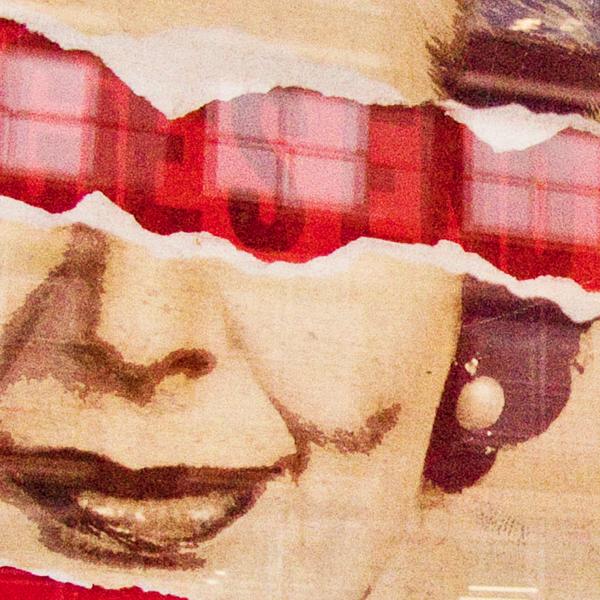Note: for anyone who hasn’t yet encountered it, “the hinterland” is a term used by American writer Phil Neel to refer to places outside the big metropolitan centres of the global economy – see this interview for more on the concept.
12 Rules for What, a new-ish antifascist podcast, recently published an article in Freedom about recent developments such as the formation of the London Anti-Fascist Assembly, along with an accompanying podcast episode on antifascist strategy.
Both are fine enough as a London perspective on London antifascism, but somewhat inadequate as a survey of the broader UK, or even English, picture. At one point in the podcast (around 18 mins), they repeat the line that the SWP/Stand Up to Racism are essentially on their way out, are being more and more sidelined and so on, which is a brag I’ve heard repeated in one form or another since 2013. It may well be true enough in Dalston, but the picture in other parts of the country doesn’t show the picture to be quite so rosy.
To examine one obvious example: the European election campaign in May saw probably the most serious and high-profile far-right election campaign since the heyday of the BNP, with Tommy Robinson’s tour of the north-west along with the newly fashified UKIP standing several alt-right candidates. In the end, both were way outperformed by the Brexit Party’s nationalism-without-obvious-fash-links, and all they managed to achieve was to give us probably the most memeable moment of antifascist action since the punching of Richard Spencer; but let’s take a moment to think about the list of Robinson’s campaign stops, and who was organising the opposition. On the plus side, there’s Bootle, where Merseyside antifascists continue to be an inspiration as always; but, in Bury, in Warrington, in Preston, in Broughton/Salford, and even in Oldham, what did organised antifascism, along the lines of the Anti-Fascist Network, the Anti-Fascist Assemblies, the Feminist Anti-Fascist Assembly or any other similar brand name, have to offer?
Depending on where you live, your regional fascists may not have their eyes on Warrington and Oldham, but might instead be thinking about Rotherham or Halifax or Telford or Bishop Auckland or Sunderland or even Basildon, but the point’s worth bearing in mind: a lot of far-right attention is focused on the towns, not the cities, and a London-centric, or even London/Brighton/Bristol-centric, antifascist analysis will not be able to respond adequately. On a related note, the SWP/SUTR are still capable of operating and mobilising in many of these places where we aren’t, which doesn’t make them any less bad or the need to organise independently any less urgent, but does make things a bit more complicated than you might think from listening to some of the “it’s all sorted, they’re a dying sect, they’re the past we’re the future” bravado that some antifascists are prone to coming out with.
Having engaged my Eeyore buzzkill tendencies to the full there, it is worth noting a few positive examples that deserve to be appreciated and repeated elsewhere: the Women’s Strike Assembly/feminist antifascist organising in Huddersfield; Cardiff feminist antifascists supporting a mobilisation in Swansea; and the Kirklees Anti-Fascist Assembly’s organising against a far-right march (that was eventually cancelled) in Dewsbury, involving efforts in places such as Wakefield and Batley. All steps in the right direction, and worth learning from and repeating elsewhere.
In the closing section of the article, “Culture not subculture”, they briefly consider and then dismiss the idea of a revived Rock Against Racism, on the grounds that “dominant forms of culture have moved on… fascist and reactionary movements are not prioritising music as a way to capture new recruits.” It’s true enough that fascists aren’t making a challenge for hegemony in most music scenes, but that doesn’t in itself mean that anti-racist/anti-fascist music campaigns are pointless. Even if they’re not directly challenging fascist recruitment, such projects can still serve other goals such as raising funds or helping to develop people from a vague opposition to racism, to actively identifying with antifascism, to actually being involved with antifascist work. On the other hand, we probably should be wary of anything directly branded as a RAR revival, in case the leadership ends up being yet another lash-up of the SWP’s central committee with whatever Labour politicians are still willing to endorse SWP initiatives.
Instead of music, 12 Rules… champion Clapton CFC and the work of leftist youtubers. It seems a strange omission to mention Clapton but skip over perhaps the most important cultural antifascist campaign to emerge in years, if not decades, Football Lads and Lasses Against Fascism. This might well be explained by the generational differences/clashes they mention in the podcast (around 10 mins)*, but it’s still a bit disappointing – in terms of far-right recruitment, YouTube may have been a key breeding ground for oddballs like the Make Britain Great Again red hat kids, but English fascism as a mass street movement in recent years, from the EDL to the FLA to the DFLA, has been thoroughly bound up with terrace culture, and not primarily the terraces of the Essex Senior League at that.**
~ Cautiously Pessimistic
*it strikes me that enabling more conversation across these generational/tendency lines might be one really useful role that future episodes of the podcast could play.
**admittedly, this point is somewhat complicated by Robinson’s current status as a social media influencer, and Gerald Batten’s bid to rebrand UKIP as Colonel Blimp’s Dank Meme Stash; but Robinson’s prominence was achieved off the backs of the EDL, and both Robinson and Batten are still dependent on the DFLA for street footsoldiers, so I think the general point still stands.
Photo credit: Peter Marshall








